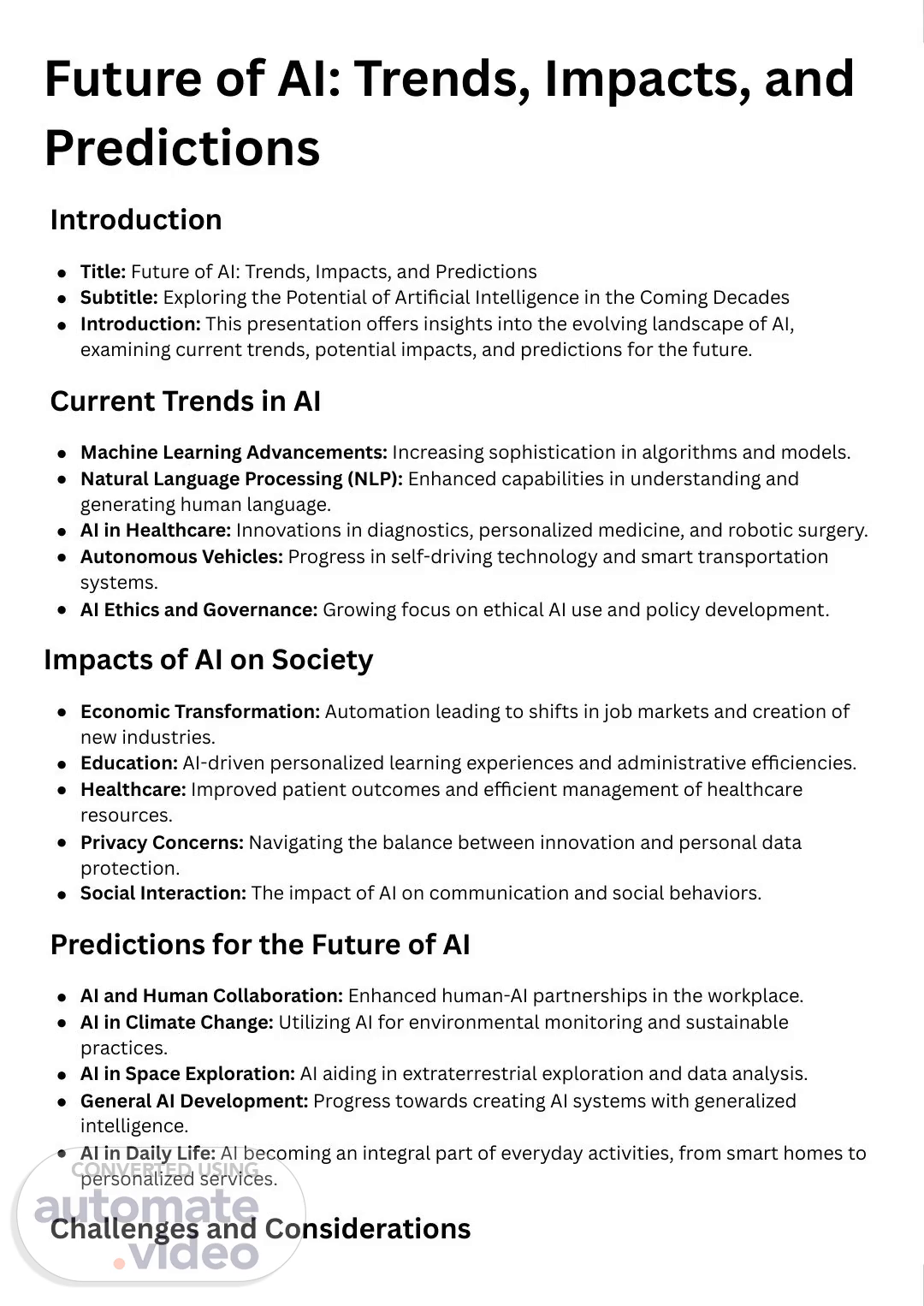Scene 1 (0s)
Future of AI: Trends, Impacts, and Predictions Introduction Current Trends in AI Impacts of AI on Society Predictions for the Future of AI Challenges and Considerations Title: Future of AI: Trends, Impacts, and Predictions Subtitle: Exploring the Potential of Artificial Intelligence in the Coming Decades Introduction: This presentation o�ers insights into the evolving landscape of AI, examining current trends, potential impacts, and predictions for the future. Machine Learning Advancements: Increasing sophistication in algorithms and models. Natural Language Processing (NLP): Enhanced capabilities in understanding and generating human language. AI in Healthcare: Innovations in diagnostics, personalized medicine, and robotic surgery. Autonomous Vehicles: Progress in self-driving technology and smart transportation systems. AI Ethics and Governance: Growing focus on ethical AI use and policy development. Economic Transformation: Automation leading to shifts in job markets and creation of new industries. Education: AI-driven personalized learning experiences and administrative e�ciencies. Healthcare: Improved patient outcomes and e�cient management of healthcare resources. Privacy Concerns: Navigating the balance between innovation and personal data protection. Social Interaction: The impact of AI on communication and social behaviors. AI and Human Collaboration: Enhanced human-AI partnerships in the workplace. AI in Climate Change: Utilizing AI for environmental monitoring and sustainable practices. AI in Space Exploration: AI aiding in extraterrestrial exploration and data analysis. General AI Development: Progress towards creating AI systems with generalized intelligence. AI in Daily Life: AI becoming an integral part of everyday activities, from smart homes to personalized services..
Scene 2 (1m 1s)
Conclusion Thank You Thank you for your attention and participation. Ethical Dilemmas: Addressing bias, accountability, and transparency in AI systems. Regulatory Frameworks: Developing international standards and regulations for AI deployment. Security Risks: Mitigating the potential for AI misuse in cyber threats and warfare. Public Perception: Educating society about AI to foster informed acceptance and trust. Summary: AI holds transformative potential across various sectors, promising both opportunities and challenges. Call to Action: Encourage proactive engagement in shaping the future of AI through informed decision-making and ethical practices. Closing Thoughts: As AI continues to evolve, its integration into society will require careful consideration and collaboration to maximize benefits and minimize risks..
